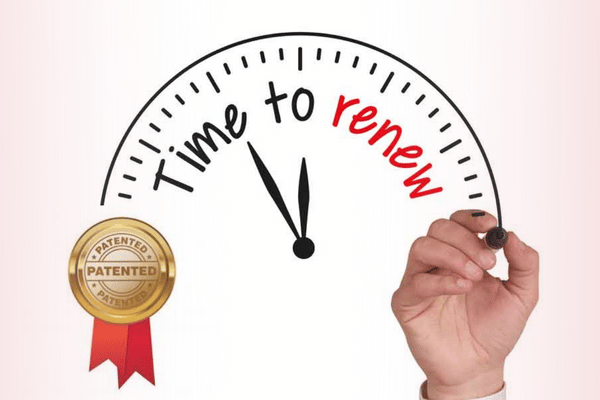Renewal of patent
In India the patent is granted for a period of 20 years. During this period the applicant has to pay renewal fees to the controller of the patent every year starting from 2nd year of the term for renewal of patent.
If the patent holder fails to pay the renewal fees/annuity, then the patent will cease to exist and the invention will fall into public domain.
If this happens then the patent holder can reinstate the patent in two ways-
- by requesting for six months extension for payment of annuity by paying late fee
- by filing for restoration of patent
As per section 60 of the Patents Act when a person fails to pay the renewal fees within the prescribed period, then he/she or his legal representative can file an application for the restoration of expired patent.
The application for the restoration of expired patent has to be filed within the period of 18 months from the date on which the patent falls into public domain.
Procedure for Disposal of Application for Restoration of Patent
According to section 61 of the patents act, after hearing the applicant the controller is required to publish the application in a prescribed manner if he is satisfied that the failure to pay renewal fees was unintentional and there was no delay in making the application for restoration. After publication of the application, any person can oppose the application for restoration of expired patent by giving a notice to the controller on the following grounds:
- The failure to pay the annuity was not unintentional; or
- There has been undue delay in making the application for restoration of expired patent.
If notice of opposition is given within the prescribed period, the Controller shall notify the applicant, and shall give to him and the opponent an opportunity to be heard before deciding the case.
If no one opposes the application, then upon the payment of unpaid renewal fee and other additional fees as prescribed, the controller will restore the patent and any patent of addition specified in the application which ceased to have effect along with the patent.
In order to restore the patent, The Controller can also ask the applicant to register any document which must be registered but was not registered earlier.
Note: – Only the interested person can file the notice of opposition and the time period for filing the notice of opposition is two (2) months and the same is filed on FORM 14 with its prescribed fees.
Rights of patentees whose patent are restored
Section 62 of the Act provides that after the restoration of expired patent the Controller can impose some conditions on the patentee in order to protect the persons from compensation who began to avail themselves of the patented invention during the time period in which the patent ceased to exist but before the publication of application for restoration of patent.
Also, no suit or proceedings can be initiated against such person who began to use the patented invention during above mentioned period.
Role of patent attorney in renewal and restoration of patent
- The patent attorney assists the client in payment of renewal fees for the patent.
- In case of non-payment of renewal fees, the patent attorney facilitates the client in complex procedure for restoration of his/her patent.
- The patent attorney helps the client in meeting the requirement for restoration of patent.
- A patent attorney assists the client in court in case someone files for an opposition for restoration of the patent.

